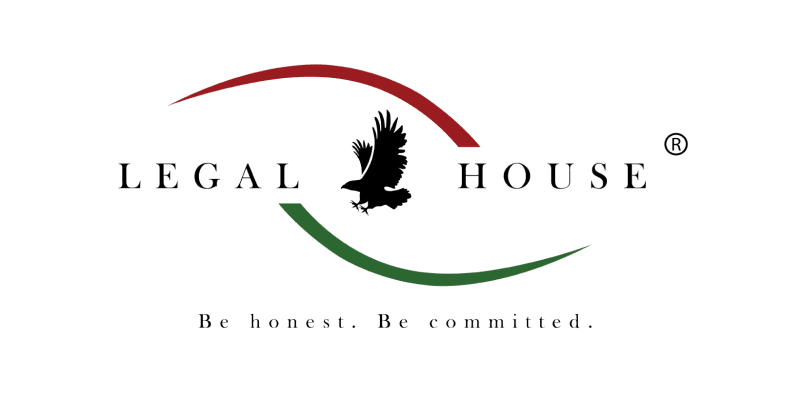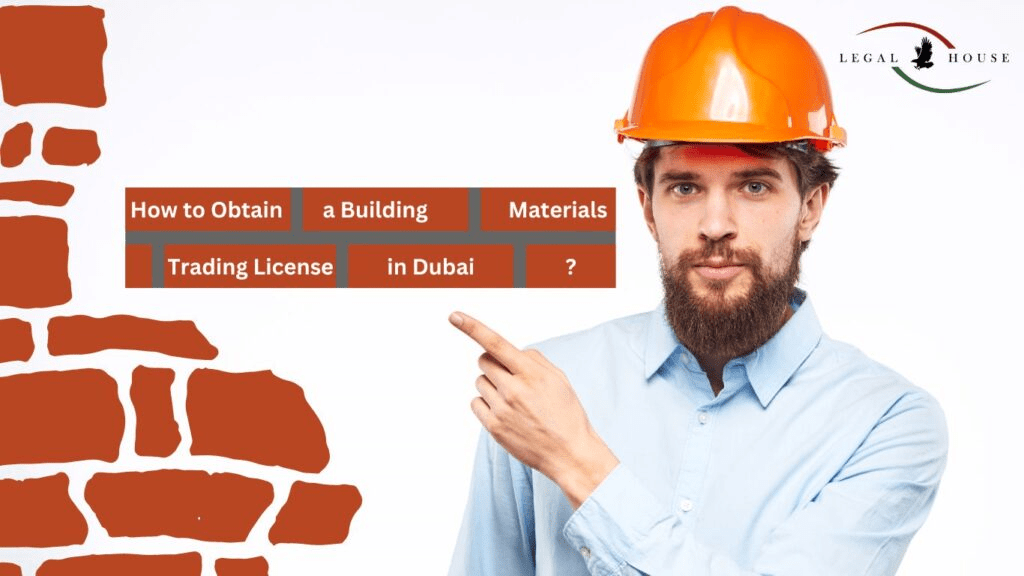How to Obtain a Building Materials Trading License in Dubai?
If you’re planning to start a business in the building materials trading industry in Dubai, it is essential to obtain the necessary licenses and permits. This article will guide you through the process of obtaining a building materials trading license in Dubai, along with a list of activities covered under this license.
What are the activities that come under building materials trading Category?
Building materials trading encompasses a wide range of activities related to the trading and supply of various construction materials. Here is an expanded list of activities that fall under the building materials trading category for obtaining a commercial license in Dubai:
Bolts, Nuts, Screws & Nails Trading
Bricks Trading
Builders’ Plastics Ware Trading
Building & Construction Materials Trading
Building Hardware & Tools Trading
Building Metal Products Trading
Cement & Gypsum Trading
Cement Products Trading
Construction Chemicals Trading
Crane Rails & Fixing Accessories Trading
False Ceilings Trading
Fibre Glass Products Trading
Fire Fighting Pipes Trading
Fire Resistant & Retardant Materials Trading
Fire Resistant Doors Trading
Fly Ash Trading
Glass & Mirrors Trading
Grease Traps Trading
Green Buildings Construction Materials Trading
Gum & Glue Trading
Gypsum Products Trading
Insulation & Protection Materials Trading
Ironmongery Trading
Lighting Poles Trading
Locks & Keys Trading
Maquettes & Models Trading
Marble & Natural Stones Trading
Non-Ferrous Metal Trading
Occupational Hygiene & Safety Requisites Trading
Paints & Coating Materials Trading
Pipes & Fittings Trading
Plastic Sheets Trading
Pre-Fabricated Houses Trading
Raised Access Computer Floors Trading
Readymix Concrete Trading
Reinforcement Steel Bars Trading
Rock Wool Trading
Ropes, Sacks & Jute Bags Trading
Sand, Gravel & Stones Trading
Sanitary Ware Trading
Scaffolds Trading
Scales & Dry Measures Trading
Special Fabrics & Fibers For Construction Trading
Steel and Basic Steel products trading
Swimming Pools Trading
Tanks & Silos Trading
Tiles & Flooring Materials Trading
Timber Trading
Water Heaters Trading
Wooden Products Trading
Workshop Hardware & Tools Trading
Understanding the process to get building materials trading license in Dubai:
To get a building materials trading license in Dubai, you need to follow a specific procedure. Here are the simple steps that help you navigate the process effectively:
Step 1: Determine the Legal Structure: Decide on the legal structure for your business, such as a sole proprietorship, partnership, or limited liability company (LLC). Each structure has its own requirements and implications, so choose the one that suits your needs. also need to select the business activity and the location you would like to have.
Step 2: Choose a Business Name: Select a unique and appropriate name for your building materials trading company, ensuring it complies with the guidelines provided by the Department of Economic Development (DED) in Dubai.
Step 3: Secure a Local Sponsor: If you’re a foreign investor, you’ll need a local sponsor or partner who holds 51% ownership of the company. The sponsor will not be actively involved in the day-to-day operations but will be a silent partner.
Step 4: Prepare the Required Documents: Gather the necessary documents, including your passport copies, visa copies, No Objection Certificate (NOC) from your current employer (if applicable), business plan, tenancy contract, and other relevant paperwork as specified by the DED.
Step 5: Submit Application: Submit your license application to the DED along with the required documents. Ensure that you fill out the application accurately and pay the necessary fees.
Step 6: Trade Name Approval: After submitting your application, you’ll receive the trade name approval from the DED. This confirms that your chosen business name is available and meets the guidelines.
Step 7: Obtain Initial Approval: Upon receiving the trade name approval, you can proceed to apply for initial approval from the DED. This step involves submitting your business plan and other required documents.
Step 8: Lease a Business Premise: Secure a suitable business premise for your building materials trading company and provide the tenancy contract to the DED as part of the licensing process.
Step 9: Final Approval and License Issuance: Once all the necessary steps are completed and your application is reviewed, you will receive the final approval from the DED. Pay the relevant fees to obtain your building materials trading license in Dubai.
The cost of a building materials trading license in Dubai varies based on the company’s size and activity, typically ranging between AED 30,000 and AED 50,000 for mainland licenses from DED. For Freezone companies, the cost starts at AED 15,000, excluding visa and service fees. It is important to consider application requirements and complexity and confirm the costs with the relevant authorities as they are subject to change.
How legal house can assist you?
Legal House offers comprehensive assistance in obtaining a building materials trading license in Dubai. With their expertise and knowledge, we can guide you through the entire process, ensuring compliance with the legal requirements and regulations. Our experienced professionals will provide accurate and up-to-date information, explaining the necessary steps and documentation needed for the license application.
Legal House can assist in preparing and organizing the required paperwork, ensuring that all documents are properly filled out and submitted on time. We will navigate any complexities that may arise, saving you time and minimizing the risk of errors or omissions that could potentially delay the licensing process. By utilizing our services you can streamline the procedure and increase the chances of obtaining your building materials trading license efficiently and effectively.
FAQ
To obtain a Building Material Trade License in Dubai, the required paperwork includes submitting copies of passports, and Emirates ID of company owners, initial approval copy, confirming the trade name copy, Memorandum of Association (MOA), & Ejari or lease agreement.
The best location for a building material business in Dubai depends on factors such as proximity to construction hubs, accessibility to customers and suppliers, and infrastructure. Areas like Al Quoz, Jebel Ali, and Dubai Industrial City are free zones that are popular choices due to their proximity to construction activities and industrial zones.
To start a building material trading business in Dubai, you will typically require approvals from the Department of Economic Development (DED) or the relevant free zone authority. This includes obtaining a commercial license, registering the trade name, and fulfilling any specific requirements set by the authorities.
To legally protect your business, it is advisable to register your company and obtain the necessary licenses. You should also establish clear contracts and agreements with suppliers and customers, outlining terms and conditions, payment terms, and dispute resolution mechanisms. Additionally, consulting with legal professionals like us can help ensure compliance with local laws and regulations.
The capital requirements for starting a trading business in Dubai vary depending on several factors, such as the type of license, the location, and the scale of operations. While there is no fixed minimum capital requirement, it is generally recommended to have sufficient funds to cover setup costs, initial inventory, rent, salaries, and other operational expenses.
The specific permits and certifications required for importing building materials into Dubai may vary depending on the type of materials. Generally, you will need to obtain the necessary import permits, such as a customs clearance certificate, and ensure compliance with relevant quality standards and regulations.
While there are no major restrictions on trading building materials in Dubai, it is important to ensure that the materials comply with local regulations and quality standards. Certain specialized materials or products may require additional certifications or approvals.
Depending on the scale and nature of your storage and warehousing operations, you may need to obtain specific permits, such as a trade license for warehousing or approvals from relevant authorities for compliance with safety and fire regulations.






